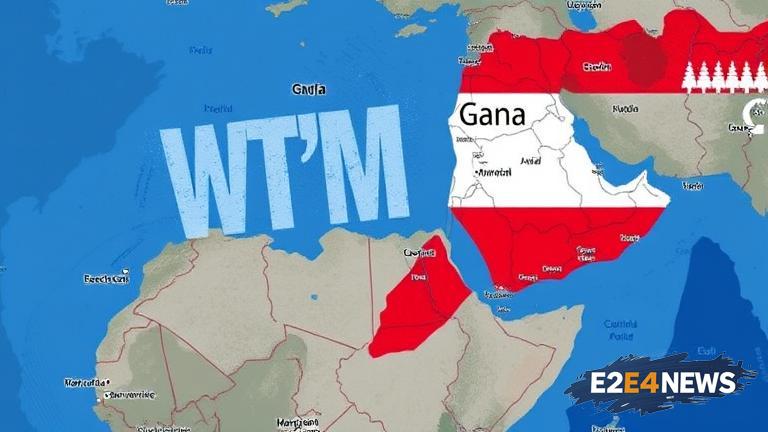The Israeli government has been facing intense international pressure to reevaluate its approach to the Gaza Strip, particularly in the wake of recent conflicts that have resulted in significant civilian casualties. In response, Israel is currently in the process of developing a new strategy for managing the situation in Gaza, one that seeks to balance the country’s legitimate security concerns with the pressing humanitarian needs of the local population. This new approach is expected to involve a combination of diplomatic, economic, and military measures, all designed to reduce tensions and improve the overall quality of life for those living in the region. A key component of this strategy will be the implementation of new policies aimed at alleviating the economic hardship faced by many in Gaza, where unemployment rates are high and access to basic necessities like food, water, and healthcare is often limited. By addressing these underlying issues, Israel hopes to reduce the appeal of extremist groups and create an environment more conducive to peace and stability. At the same time, the Israeli military will continue to take steps to protect the country from the threat posed by Hamas and other militant organizations operating in the area. This will include the use of advanced technologies and tactics to minimize the risk of civilian casualties, while also ensuring that those responsible for attacks against Israel are held accountable. The development of this new strategy comes at a critical juncture, as the international community has grown increasingly vocal in its criticism of Israel’s actions in Gaza. The United Nations, European Union, and other global bodies have all called for a more nuanced approach, one that prioritizes the protection of human rights and the promotion of sustainable peace. In light of these developments, Israel’s decision to revisit its Gaza strategy is seen as a positive step, one that reflects a willingness to listen to international concerns and adapt to changing circumstances. However, the path forward will undoubtedly be challenging, requiring careful coordination between different branches of the Israeli government, as well as close cooperation with international partners. The success of this new strategy will depend on a variety of factors, including the ability of Israel to effectively engage with local stakeholders, the willingness of Hamas and other militant groups to renounce violence, and the provision of sufficient economic and humanitarian support from the international community. As the situation in Gaza continues to evolve, it is clear that there are no easy solutions, but rather a complex array of challenges that will require patience, persistence, and a commitment to finding a peaceful resolution. The international community will be watching closely, eager to see whether Israel’s new strategy can help to reduce tensions and improve the lives of those living in the region. In the meantime, efforts to promote dialogue and understanding between Israelis and Palestinians will remain essential, as will the need for sustained economic and humanitarian support. The role of the United States and other key international actors will also be crucial, as they work to facilitate a lasting peace and provide the necessary resources to support Gaza’s recovery. Ultimately, the development of a new Gaza strategy by Israel represents an important opportunity, one that could help to pave the way for a more stable and prosperous future for all parties involved. By prioritizing the needs of civilians, addressing the root causes of conflict, and promoting a culture of peace and reconciliation, it may be possible to create a brighter future for the region, one in which the rights and dignity of all individuals are respected and protected. The coming months will be critical, as Israel works to implement its new strategy and the international community provides support and guidance. With careful planning, coordination, and a commitment to peace, it is possible to overcome the challenges that have plagued Gaza for so long and create a more just and equitable society for all. The need for a comprehensive and sustainable solution has never been more pressing, and it is only through collective effort and determination that a lasting peace can be achieved. As the world watches, Israel’s new Gaza strategy will be put to the test, and the consequences of success or failure will be far-reaching. The time for action is now, and the international community must come together to support this critical endeavor. The future of Gaza and its people depends on it, and the world cannot afford to wait any longer for a solution to this longstanding and deeply troubling conflict.





